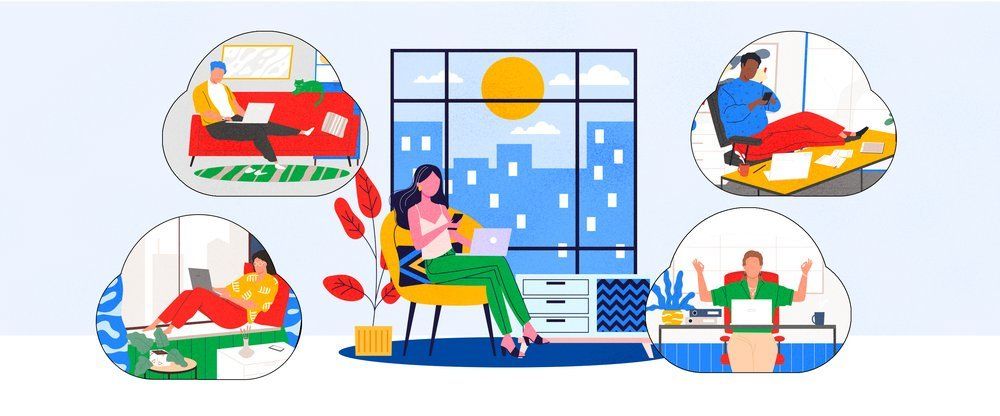7 Tips to Keep Your Smartphone Safe
 Smartphones are great! Apparently I’m not the only one that thinks so…
more people are using smartphones to connect to the Internet than PC’s
in key markets. Consumers have discovered the convenience of having mobile “mini-computers” and are using them to take full advantage of
apps
and access to instant information. Unfortunately the scent of success has attracted the attention of Internet predators, so a focus on mobile security is becoming increasingly important. The easy access to information we enjoy on our phones can be a prime target for hackers taking advantage of this new frontier. Keep these 7 tips in mind to keep yourself protected when you’re on the go:
Smartphones are great! Apparently I’m not the only one that thinks so…
more people are using smartphones to connect to the Internet than PC’s
in key markets. Consumers have discovered the convenience of having mobile “mini-computers” and are using them to take full advantage of
apps
and access to instant information. Unfortunately the scent of success has attracted the attention of Internet predators, so a focus on mobile security is becoming increasingly important. The easy access to information we enjoy on our phones can be a prime target for hackers taking advantage of this new frontier. Keep these 7 tips in mind to keep yourself protected when you’re on the go:
1. Open Wi-Fi
Most smartphones allow you to use Wi-Fi connections to supplement your 3G or 4G connection. While connecting to Wi-Fi at home is perfectly safe, using public Wi-Fi can introduce some dangers. People can use software to intercept traffic from your phone, exposing any information you are entering or viewing. When using a public wireless connection, you may want to be careful of using apps or websites that require you to enter a password. Avoid looking at bank for financial information as well. When you use public wireless, you never know who’s watching. If you need to do something secure, switch to your phone’s 3G or 4G connection.
2. App Safety
The Android Market and the iTunes App Store have more apps available than you can shake a cyber-stick at, but not all of them are gems. Malware does make it out there. Like a virus on a PC, a malware app can steal data, disable or modify functions, and cause a lot of other nasty problems. The good news is Google and Apple do a fairly decent job of filtering out dangerous software (they even have the ability to “recall” applications, ripping them off of your phone automatically if they’re proven to be malicious). Read reviews and do some research to make sure you’re not installing a steaming bowl of virus on your phone.

3. Password Protection
If you lose your phone, anyone may be able to pick it up and view your contacts, calendar, email, not to mention do all sorts of embarrassing stuff with your Facebook profile. Most people are using the simple “finger swipe” lock screen. Secure your phone using a password or any of the other security options your phone offers. To lock your phone:
- Android users can open “Settings” and select “Security” to get locking options.
- iPhone users can open the “Settings” app, then under “General” select “Passcode Lock”.
- Blackberry users can open “Options”, then “Security Options”, and change the Password field to “Enabled”.
4. Be Careful About Side-Loading
Some software isn’t available in the app stores. You may find cases where websites actually host apps themselves and want you to download them directly rather than go through the normal channels. The problem with doing this is there is no third party saying “This app is safe to use”. Be careful about installing software from non-official sources.
5. Watch your GPS
GPS integration into services is a double-edged sword. Sure, it’s cool to have Foursquare or Facebook say “You’re at this location at this time,” but telling people where you are is also telling people where you aren’t. Thieves can easily use social platforms and information from GPS-based apps to plan burglaries. A tip I like to give to people: Share all you want, but do so AFTER the fact. “Just got back from the movies” is a lot safer than “I’m currently at the movies.” Keep GPS tracking in social apps turned off.
6. Keep Up To Date
All those apps you have installed can also have vulnerabilities…a word hackers love. Phones are constantly being poked and prodded looking for a loophole to gain profitable information. If possible, set your applications to update automatically so you receive patches to these security holes as soon as they’re available.
7. Tracking Services
If you ABSOLUTELY can not function without your smartphone, you may want to consider a tracking application so it can be recovered should you ever lose your baby. Applications such as Where’s My Android and Find My iPhone can help you locate your lost device, and even feature GPS functionality to zero in on its exact location.
Final Thoughts
I’m often asked “What about antivirus software for my phone?” It sounds logical, but I’m torn on the subject. I’ve tested various products from McAfee, F-Secure, and a few others, and was left underwhelmed. These products really bog down the phone and seem to block a good number of the legitimate things I want to do. On top of that, the reports I’m seeing say they’re not very reliable for blocking mobile viruses. This all points to an immature product. At this stage, I’m recommending to follow the above seven tips and you’ll be safe. I think mobile antivirus needs some time to grow up to be worth it, so I’ll revisit the subject in a few months.
While mobile devices greatly increase your productivity and communication, there’s a lot of “gotchas” to be aware of. Just like using any Internet device, it’s good to know the pitfalls before you encounter them. This information isn’t meant to scare you but make you better informed. Watch yourself out there and you should be fine.








